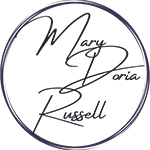The Sparrow remains unfilmed, after 15 years of sustained effort by people passionate about getting a movie adaptation produced. What’s the problem?
Here’s the conventional wisdom. There’s a big market for science fiction action movies, but despite the success of films like “Moon” and “Inception,” there’s no market for science fiction drama. As one insider told me, “Not even George Clooney could get anybody to go see ‘Solaris.’”
Since 1996, when The Sparrow was published, there have been three screen adaptations of the novel. Two of them were commissioned by major studios for huge stars: Universal Pictures (Antonio Banderas) and Warner Brothers (Brad Pitt). My friend Karen Hall and I wrote a third screenplay, on spec. Our version was a close adaptation of the novel, and that is currently the only version on the market.
A few days ago, I heard from Michael Seitzman, who wrote the adaptation meant for Brad Pitt. When WB took a pass, the rights to his screenplay eventually reverted to Michael. He sent me a link to the asteroid mining venture that’s been in the news lately, and took that opportunity to ask what was happening with the Sparrow adaptation that Karen and I wrote.
My answer was, “Not a damn thing.” We still hope that director Scott Derrickson will find a way to make the movie, but as Karen’s agent said, “I love the story and the characters and the world and the philosophy and religion. However, I believe that Hollywood’s version of this would eliminate almost all of that.”
When Michael asked if I was willing to discuss permission to bring his adaptation to market again, I thought hard about what that might mean. In many ways, the Seitzman screenplay is clever and well-thought out. In the present market, his version of The Sparrow has a far better chance of getting produced than the Russell-Hall screenplay because his story skews toward action-adventure without totally losing what made the book work.
If I said yes to Michael, if he managed to sell his screenplay, and if a studio decided to make the movie [insert many additional ifs here] hundreds of jobs would be created. My own son is a film and digital media editor in Hollywood, so I know how important each new TV show or movie is to people in the industry. Hollywood productions are America’s most popular exports, and that’s not to be sneered at in today’s economy. Plus: the mere announcement of a movie option results in a flurry of publicity – that’s just about the only kind of advertising that a book can get these days.
So I did not simply cry, “Get thee behind me, Satan!”
What I kept circling back to was this: every few days, I hear from a new reader who has been profoundly moved by The Sparrow, or from someone who rereads it yearly. Many people have told me that The Sparrow is their all-time favorite book. No one is more surprised than I, but no amount of self-deprecating humor can change the fact that readers around the world have an intimate and important connection to a novel I wrote 20 years ago.
So I have turned Michael’s request down. I did not consult with anyone before I did so. I didn’t tell my agents, or ask my son, or talk to my husband. This was a personal decision, made from the heart.
Michael’s adaptation made sense in the context of what Hollywood is likely to buy and/or produce, but it changed too much of the story for it to be satisfying to the many readers who genuinely love that novel. And I don’t want to spend the rest of my life apologizing to people who would feel betrayed by a screen adaptation that didn’t face up to the central issues of the story.
